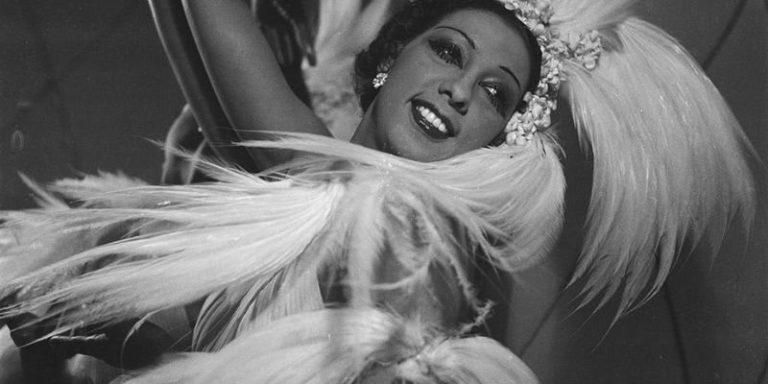Josephine Baker Honored as a Hero in France’s Pantheon
The American-born performer, activist and spy is revered as a hero in Paris ceremony.
By: Kirsten Brooker | December 13, 2021 | 623 Words

Josephine Baker (Photo by Gaston Paris/Roger Viollet via Getty Images)
Andrew Bernstein once said, “Nothing is given to man on Earth – struggle is built into the nature of life, and conflict is possible – the hero is the man who lets no obstacle prevent him from pursuing the values he has chosen.” Josephine Baker, a woman of many talents and titles, received the honor of heroes as she became the first black woman to be entombed in the Pantheon in Paris, France. Baker was a dancer, actress, World War II spy, and civil rights activist.
Freda Josephine McDonald
Freda Josephine McDonald was born on June 3, 1906, in St. Louis, Missouri. Her parents were both entertainers, so she spent much of her time backstage. She learned to love the music, dancing, and lights. Her folks began to struggle to find work, so the young Freda Josephine found herself dancing on the streets to try and make some money. It didn’t take long for her to gain the attention of an African American performing crew. When she was 15, the group asked her to join them, and she accepted. Soon after, Freda Josephine married and began using her middle name as her first. Her new name was Josephine Baker.
A Hero for the French

Josephine Baker (Photo by REPORTERS ASSOCIES/Gamma-Rapho via Getty Images)
Josephine’s success as a dancer eventually took her to Paris, France. Her dancing, singing, and acting skills made her one of the most popular performers. Josephine’s costumes and performances were unique as they mimicked themes and styles of African heritage.
While Josephine was incredibly skilled in the entertainment business, that is not the only reason she is seen as a hero today. During World War II, the Germans invaded France. Baker assisted the French by passing on secret information she would overhear while performing for the German Nazis. She used invisible ink and wrote messages to the French on pages of sheet music. For her efforts against Nazi Germany, she was awarded high French honors: the Croix de Guerre and the Legion of Honour.
Back to Her Homeland
Josephine returned to the United States after World War II ended. Even though she was a well-known celebrity, she was not permitted to be in segregated places. Baker spent much of her time as a civil rights activist and even spoke at the March in Washington in 1963. As she stood in front of a large crowd, she said, “You know, friends, that I do not lie to you when I tell you I have walked into the palaces of kings and queens and into the houses of presidents. And much more. But I could not walk into a hotel in America and get a cup of coffee, and that made me mad.” She continued to fight against racial injustices into the 1970s. Josephine Baker died on April 12, 1975.
Honored at the Pantheon
Though her family did not want to move her body to the tomb, French President Emmanuel Macron still wished to honor Josephine as a hero. So instead, they formed a casket and filled it with dirt from four important locations in her life: St. Louis, Paris, Monaco, and Milandes (the property of her home). The ceremony included a military orchestra, a choir that sang one of her songs, and Air and Space Force members, who carried her casket. Of the 80 individuals France honors as heroes, she was the first black woman and the sixth woman overall to be recognized at the Pantheon.
Josephine Baker is an iconic hero to the people of France. Her efforts in the war and her pushback against segregation earned her the title of a hero. She will forever be remembered for her many talents, bravery, and perseverance.
















